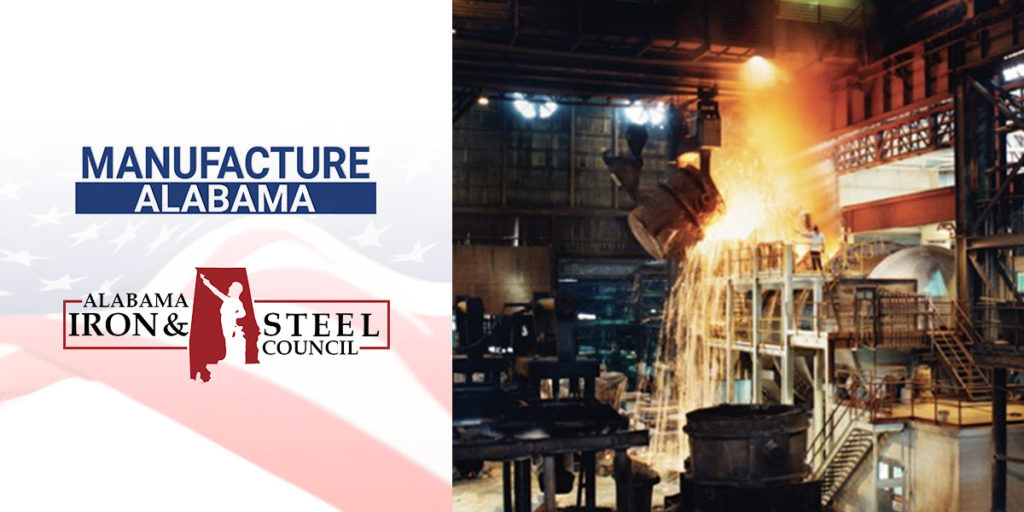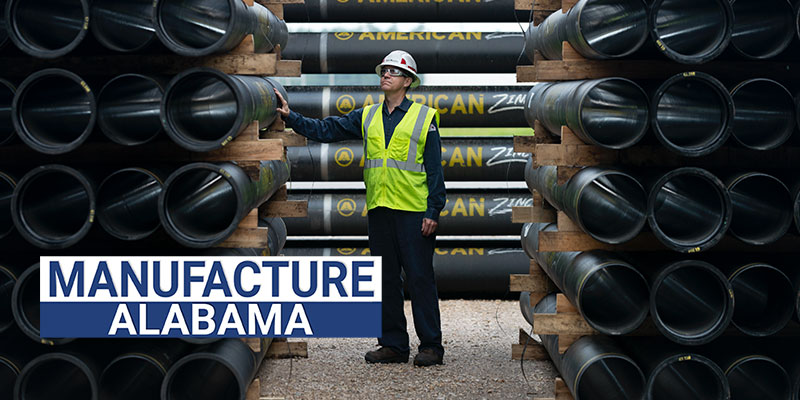Alabama’s manufacturing industry has always been at the heart of our state’s economy. Even today as Alabama’s economy is growing, the manufacturing sector is projected to have above-average growth according to a recent study from the Center for Business and Economic Research at the University of Alabama’s Culverhouse College of Business.
As we look to continue this economic growth and expanded job base, Alabama must address several challenges, including those regarding our transportation and infrastructure systems. Alabama’s crumbling roads and bridges have garnered much-deserved attention, but there are other issues, too. For example, one of Manufacture Alabama’s primary focuses during the 2019 legislative session will be state funding for a critical port expansion project.
It is important to understand, especially when lawmakers are constantly at odds over how to allocate limited resources, that infrastructure investments are not the only remedy to alleviate stress and congestion on our bridges and roads. Adoption of certain policies – such as increasing the length of twin trailers from 28 feet to 33 feet – should also be considered as a way to modernize our transportation systems.
The length of twin trailers – that is, trucks that pull two connected trailers – is currently capped by a national standard at 28 feet per trailer. However, some states, like neighboring Florida, have passed modern state regulations that allow for 33-foot twin trailers, known as “twin 33s.” By allowing a trailer length increase of just five feet, these states have created an environment for manufacturers, shippers and distributors to transport goods safely and more efficiently.
Twin 33s are a win-win-win proposition. If adopted nationwide, twin 33-foot trailers would result in 3.1 billion fewer vehicle miles traveled each year. From a safety standpoint, this would eliminate an estimated 4,500 truck accidents per year. From an infrastructure standpoint, it would reduce trucks’ impact on roads and bridges, thus improving longevity. And from an efficiency standpoint, it would increase the capacity per delivery by more than 18 percent, even with the current federal total truck weight limit of 80,000 pounds.
The current federal regulations were put in place more than 35 years ago and do not align with the demands of our 21st-century marketplace. Allowing twin 33-foot trailers to operate in all 50 states is a commonsense solution that would improve our transportation and infrastructure systems at no expense to taxpayers. In a time of innovative growth in the business and manufacturing sectors, twin 33-foot trailers will modernize the delivery of products and goods to businesses and consumers across the country. It will allow carriers to move more goods without putting additional trucks on the road and already crowded highways.
As leaders in Washington consider the future of our nation’s economy and our transportation and infrastructure systems, modernizing trucking standards should be an important part of these policy discussions. Our local, state and national economies are on the rise; we must look at the road ahead and support policies to better foster future growth and success.
George Clark is the President of Manufacture Alabama. Manufacture Alabama is the only trade association in the state dedicated exclusively to the competitive, legislative, regulatory and operational interests and needs of manufacturers and their partner industries and businesses.












